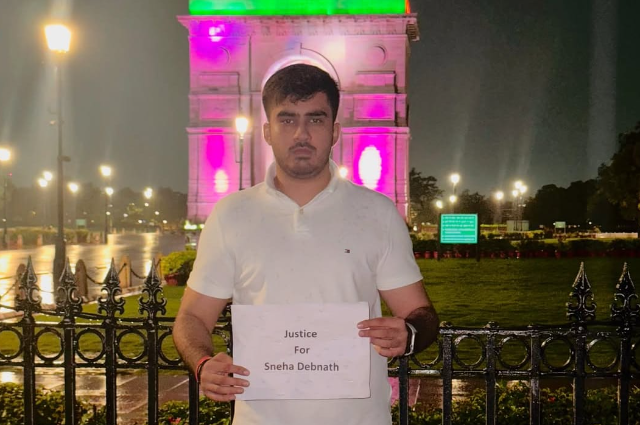
Ronak Khatri is a person who is often overlooked in the bustling corridors of Delhi University (DU), where students from all over India come with hopes and dreams. He is just another student among many. But to those who’ve witnessed his journey, Ronak represents something far more significant—a one-man army holding up a system that constantly threatens to collapse under its inefficiencies.
The Challenges Students at DU Face Everyday Before we understand Ronak's contribution, we must confront the reality of student life in DU. Even though Delhi University is regarded as one of the best educational establishments in India, it has serious flaws. Water shortages in hostels, unkempt bathrooms, faulty classroom fans and air conditioners, and libraries lacking basic amenities are just a few examples of infrastructure failures. During peak summers, classrooms turn into ovens. Students sweat through lectures, and many fall ill due to the lack of ventilation and cooling. Despite multiple complaints, the administration often fails to take timely action. It is in this environment that students like Ronak rise to the occasion, not out of obligation but from a deep sense of responsibility.
Ronak’s Unofficial Role as Problem Solver
Known to many as "Bhaiya" or "Bhai," Ronak doesn’t hold any official title. But when water stops flowing in the hostel bathrooms, it’s Ronak people call. When fans don’t work or a professor is absent for weeks, it’s Ronak who escalates the matter to the authorities. From fixing leaking taps to mediating disputes between roommates, Ronak has quietly become the bridge between administration and students.
During a dengue outbreak, he assisted us. While others waited for hospital beds or university action, Ronak personally ensured that students got tested and had medicines," recalls Priya Singh, a third-year Political Science student. The Missing Accountability. One of the major issues plaguing DU is the lack of accountability. The administration delays crucial decisions because it is frequently involved in politics and bureaucracy. Even basic amenities are not guaranteed. Complaints are either dismissed or sit in limbo. Many students come from economically weak backgrounds and cannot afford private accommodations, making the state of hostels even more important.
Ronak took matters into his own hands. He created a Google Form and started collecting anonymous complaints from students. He then compiled and emailed weekly reports to deans and wardens, highlighting repeated issues and tracking their resolution status. Over time, his system gained credibility. Officials started responding quicker, perhaps out of embarrassment or respect.
A Voice for the Voiceless. In a university where student unions are often politicized, Ronak maintained neutrality. His loyalty was never to a party, but to students. When a visually impaired student was denied access to study materials, it was Ronak who arranged for volunteers to read and record the content. When floods affected North Campus hostels during the monsoon, Ronak and a group of volunteers stayed up all night helping students move to safer locations. He also started a small initiative called "DU Help Desk" on Instagram where students can message for immediate help or information, be it about lost IDs, class schedules, or nearby clinics.
Without a Stage, Recognition Ronak never asked for recognition, but it found him. Teachers began acknowledging his efforts in class. He was mentioned in student council meetings as a problem-solver rather than a politician. He has been offered leadership roles, but he consistently refuses. "I'm not here to campaign. I'm here to help," he once told a peer.
The Larger Picture: Systemic Failure
Ronak’s story is inspirational, but it also exposes a deeper problem: students should not have to carry the weight of systemic failure. The very need for someone like Ronak points to the broken nature of DU's administrative processes. A single student should not be the reason the fan works or water flows.
In 2024, DU received a government grant of over Rs. 100 crore for infrastructure improvement. However, reports from several colleges indicate that much of it has not translated into on-ground improvements. Transparency about fund allocation remains weak, and there's little student involvement in decision-making.
Ronak's Message and Legacy
Ronak simply responds, "Agar hum nahi karenge, toh kaun karega?" when asked why he continues to do what he does. (If we don't do it, then who will?). His answer reflects a sense of ownership that many feel but few act upon.
Ronak KhatriA is not just a name; he's become a movement. A symbol that one person’s consistent efforts, no matter how small, can bring real change. His story is about more than just fixing fans or getting clean water; it also shows what compassion, perseverance, and bravery can do in a place where hope is often lacking.
Delhi University needs reform—not just infrastructure-wise, but in how it listens to and involves its students. Until then, students like Ronak Khatrii will remain the unsung backbones of a broken system, silently holding it together while dreaming of a better, fairer, and more functional tomorrow.
